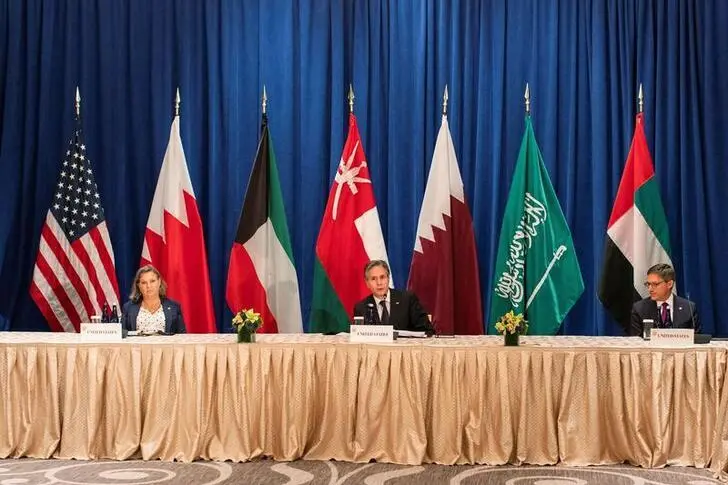PHOTO
Countries that are now part of the GCC have undergone significant energy transitions since the discovery of oil and gas in their lands. Think about what these countries were like before this wealth poured in. Then think about how they have changed and developed since. There are still older people who remember when electricity was scarce, automobiles were rare and poverty was the norm. How things have changed.
When energy transitions happen, societies and economies also change. Many elderly people in the GCC can vouch for how their countries and people have changed since, for example, the time when electricity was rare and unreliable.
Some of the main drivers of the next energy transitions will be concerns over climate change, environmental degradation, and what economists call externalities. Externalities are things produced by companies and people that are not immediately or directly paid for, but which others pay for by their existence such as emissions and pollution.
As we look at the threats likely to come from climate change, many countries and people are looking for new ways of doing things in energy. Invention, innovation, education, good governance and public policies, and good leadership can lead the way.
Given that the GCC countries rely heavily on oil and gas for their livelihoods and wealth, what happens with the next energy transitions could very much affect them. Many countries, including some GCC states, have pledged net-zero emissions by 2050, 2060 or 2070.
There is a lot of money in the next energy transitions even for the GCC. There will be trillions invested in the changes to come. Many GCC leaders, companies and investors can already see this and are reacting.
With the energy transitions and transitions GCC leadership will need to look at transitions in their fiscal policies and other economic policies. Oil and gas are significant parts of the economies, budgets and export revenues of these countries.
As the world sets its course toward net-zero emissions there is likely be a long-term decline in demand for oil and gas. However, demand for these will not disappear. Oil and gas will be needed for tens of thousands of products and processes. But it is becoming clearer that oil and gas will be declining industries in coming decades if the world stays on the path to net-zero to counter the effects of climate change.
One of the remarkable benefits for the GCC is that they can produce oil and gas at exceptionally low costs compared with many other countries. They could be some of the last ones leading the oil and gas industry as we move into the coming decades.
Some GCC states have already started their own transitional thinking and investments toward solar, wind, hydrogen, ammonia, nuclear, and more efficient use of electricity and other energy sources. The good news for the GCC is that hydrogen and ammonia could use oil, gas, solar, wind, nuclear and geothermal in their creation.
Carbon capture, use and reuse, and sequestration could also be used greatly. Circular carbon economies could be developed, whereby the carbon that is an externality can be put back into the economic system as something useful via reusing and recycling. Carbon dioxide can be feedstock to make fuels, building materials, and other useful chemicals and products. Carbon could also be removed from the air or redirected into old oil and gas wells, and other caverns underground for storage, and even later use as inventions for the use of carbon dioxide are developed.
Some of the highest per capita consumption of electricity found are in some GCC states. Much of this is for air conditioning. More efficient air conditioning systems and more rational pricing schemes could make an enormous difference.
Electricity for air conditioning mostly comes from oil and gas, which is often used for desalinating water at the same time. Solar and nuclear desalination plants are already in use in the region. More of these are likely to come. Geothermal and wind could be used for desalination. The massive reliance on desalinated water in the GCC will continue, even with the many projects to reduce the extremely high demand for water in the region compared with limited renewable freshwater resources.
As the GCC begins to focus more on their energy transitions, it should keep an eye on its energy security, resilience and reliability. Countries should keep an eye on what is happening with their economic security, resilience and reliability. They also need to be aware of the changes in their human and national security and resilience.
Future energy transitions, and the transition of the societies and economies that could go along with them, will have a lot of VUCA: Volatility, uncertainty, complexity and ambiguity. VUCA is not new to the region. The leadership can manage this with the right strategic and creative thinking, the right advice, and the buy-ins from the people. The transitions might not be smooth. But such is the VUCA of life in general. The region can overcome those challenges as it has many challenges in its past.
On the other hand, these energy and other changes will bring in massive investments that could bring employment to GCC citizens, especially their youth. If education and training in the region focused more on the changes to come those employment benefits could be multiplied. The people of the region, if prepared for these changes, could prosper.
We are at the beginning of a series of inflection points. There are no set paths for the changes to come. Leaders and the people of the region can develop their own pathways, and their own benchmarks and milestones.
Dr. Paul Sullivan is a senior research associate at KFCRIS and non-resident fellow, Global Energy Center, Atlantic Council.
Copyright: Arab News 2021 All rights reserved. Provided by SyndiGate Media Inc. (Syndigate.info).





















